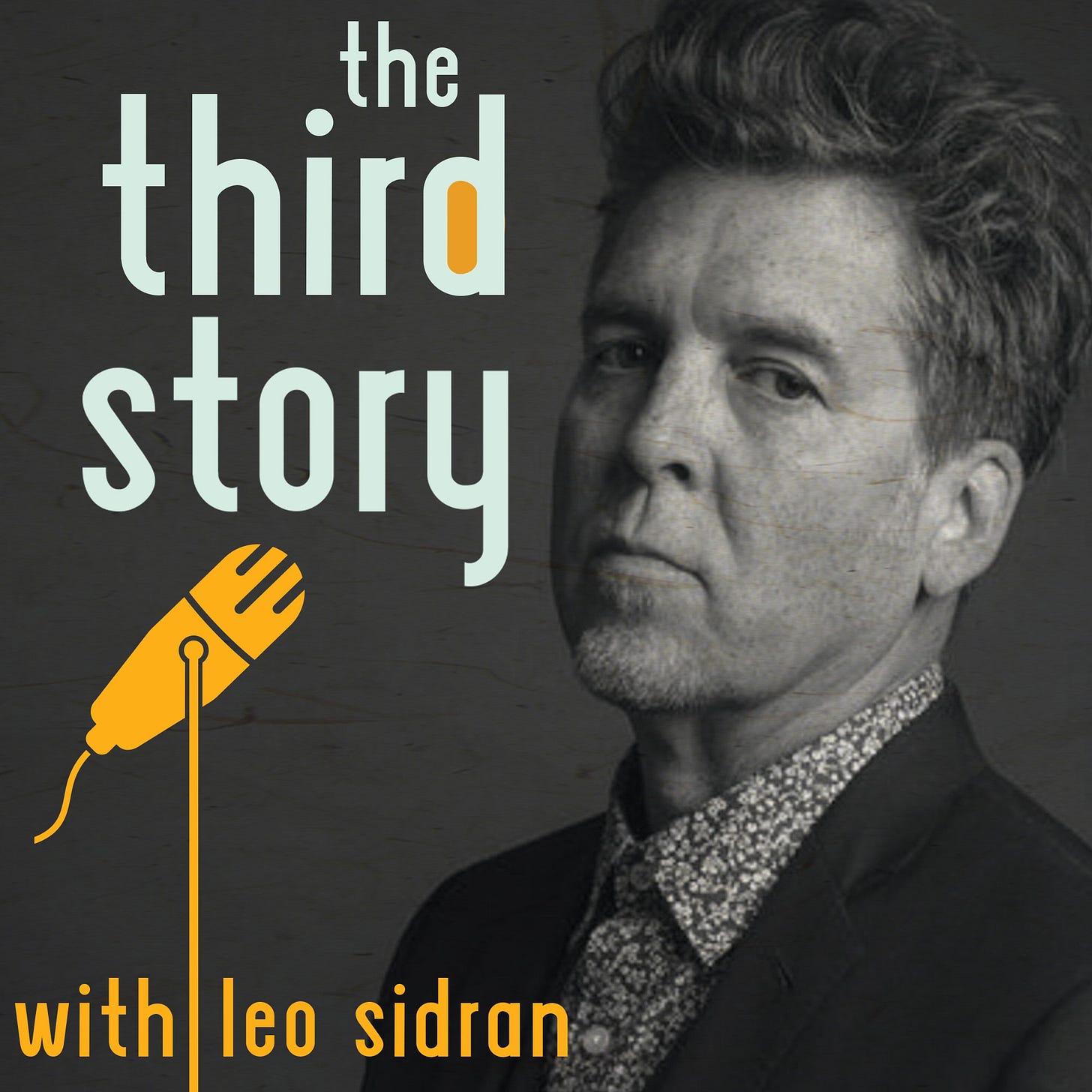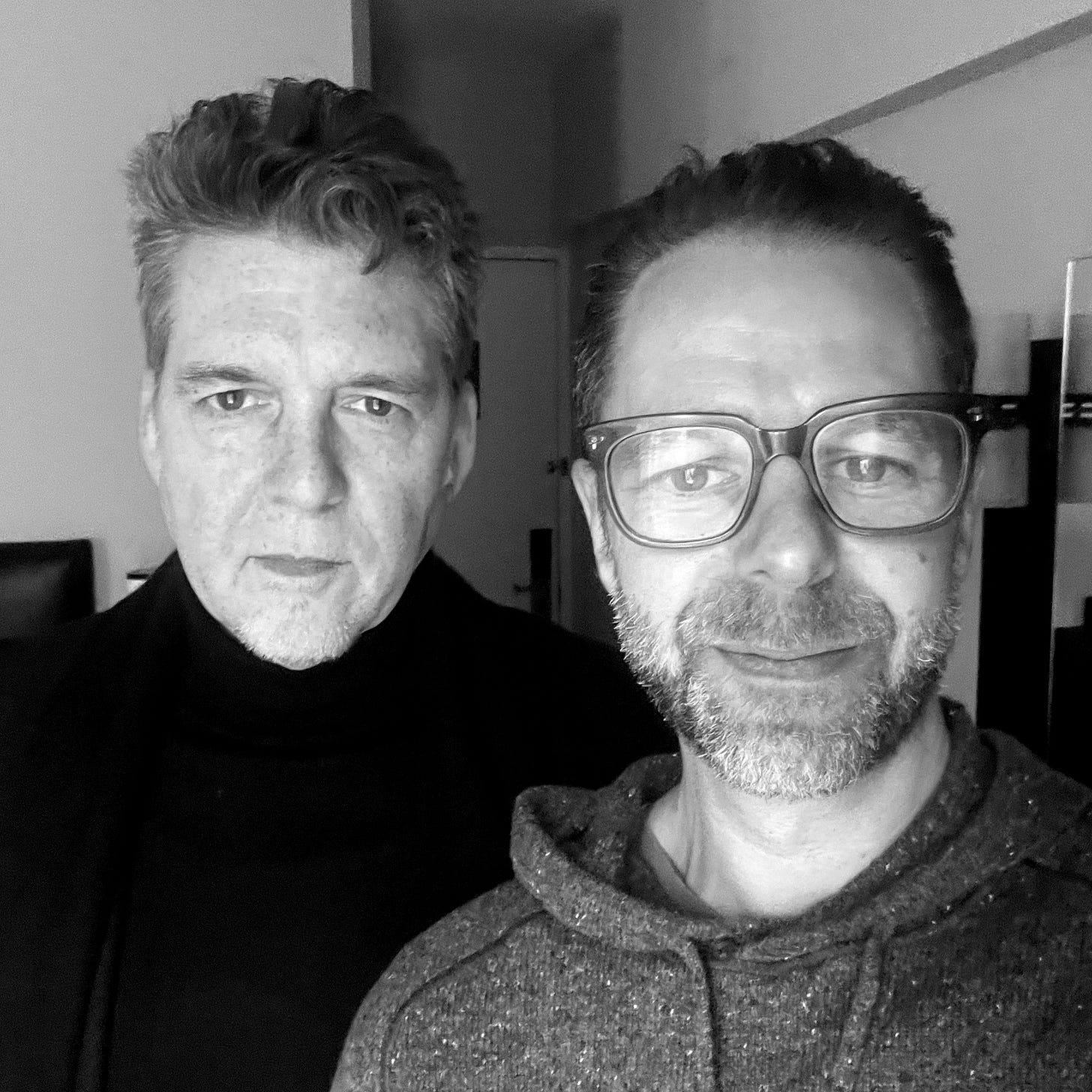The old expression “Don’t let the truth get in the way of a good story” is often attributed to Mark Twain. It helps secure his place as one of our great American folk philosophers—and is also probably a lie in its own right. But why shouldn’t it be a lie? Isn’t that the point?
The fictions we create about ourselves often reveal more truth than the facts can. Why else would we keep turning to music, poetry, and art for guidance and meaning?
The beloved Southern gothic writer Flannery O’Connor once said, “I write to discover what I know.” Eudora Welty, another celebrated Southern author, put it this way: “Writing fiction is an act of discovering what you believe.”
And for Joe Henry—the great songwriter, producer, poet, and creative force who was profoundly influenced by both—you might say the same is true: one shouldn’t let the facts stand in the way of the truth.
Joe Henry’s own identity was divided between the South and the North as a boy. Born in North Carolina, he spent time in Georgia and Ohio before his family settled in Michigan, where he came of age.
This sense of being pulled between two poles put him on a path of discovery early on—a search deepened by his close relationship with his older brother, Dave. Together, they conspired to uncover the raw material that would later inform much of Joe’s work.
He describes his upbringing as one of awe and enthusiasm for music, books, films—all part of an ongoing exchange between two brothers, looking for a way out, or at least a road toward enlightenment.
The road that stretched from North to South, from rural to urban, from Black to white, from the facts to the truth, was the one he traveled—and he did it with focus and intention.
There’s a line Joe Henry said to me that I haven’t been able to shake. He was talking about being in the studio, holding space for musicians as a producer—but it applies to just about everything in life. He said: “Total presence—that is the code of my road.”
That might be why Joe Henry’s work hits as hard as it does. His songs and productions alike are steeped in a kind of poetic clarity—deep, mysterious, often spiritual—but always grounded in the moment.
Over the past four decades, Joe has quietly helped shape the sound of American music from the inside out. Since the late 1980s, he’s released more than a dozen solo albums and worked with artists like Allen Toussaint, Mavis Staples, Solomon Burke, Bonnie Raitt, Rodney Crowell, Ani DiFranco, Joan Baez, Meshell Ndegeocello, and many more.
He’s known for his intimate, textured and somewhat shaggy production style—often recording live in the room, with minimal isolation and maximal humanity. He also co-wrote the hit “Don’t Tell Me” with Madonna, who happens to be his sister in law. And more recently he has been writing and recording with Jon Batiste.
See how Joe’s song “Stop” was adapted by Madonna and transformed into “Don’t Tell Me”.
As a songwriter, he’s always preferred storytelling over autobiography. In fact, he rejects the idea that confession is the highest form of honesty. He told me that in songwriting, “your factual experience can be disruptive to the truth you're trying to allow to move through you.”
That line stayed with me too because it speaks to the kind of artist Joe is: one who is channeling something beyond himself.
This year he is releasing three of his classic albums on vinyl for the first time, starting Civilians (2007)
He co-authored a book with his brother on the life of Richard Pryor.
We got together not long ago at the Washington Square Hotel to talk about growing up in the Midwest with deep Southern roots, about what it means to carry cultural memory in your DNA even as you try to outrun it.
We talked about his early obsession with Randy Newman and Bob Dylan, about learning to write in character, about the influence of Southern gothic literature - writers like Eudora Welty and Flannery O’Connor - and how he came to see himself as part of that lineage.
We talked about his decades-long musical relationship with T Bone Burnett, who mentored and guided him through countless situations.
We talked about producing records and about how being a good producer has less to do with telling people what to play, and more to do with being present, listening, and creating a space for something real to emerge.
We talked about Ornette Coleman. About faith. About illness. About the song that started playing in his head the day he was told he had seven months to live. And about how songs arrive, often without warning, and the discipline it takes to follow them without trying to control where they’re going.
And finally, we talked about America, what it means to be an American songwriter in 2025, at a time when the story of this country feels increasingly fragile. and the sun begins to set. But, as he sang in his 2007 song “Civilians,” “life is short but by the grace of God the night is long.”
Joe Henry’s songs offer a kind of resistance through devotion, through presence, through poetry, and, above all, through truth…no matter what the facts may say.







I 'discovered' Joe about 20 years ago when I heard a track from 'Fuse' on John Kelly's excellent 'Mystery Train' show on RTE. He rarely visits this neck of the woods but I've seen him twice in London and once in Dublin. 'Scar' and 'Fuse' are still my favourites but I've got most of his other albums - they're worth waiting for....always surprising. Ta for the interview....really enjoyed it.
I have been listening to Joe Henry since the release of "Scar", probably because Ornette Coleman was on the recording. Then, I just dove in, checking the older recordings then waiting for the next release. Excellent interview, Leo!